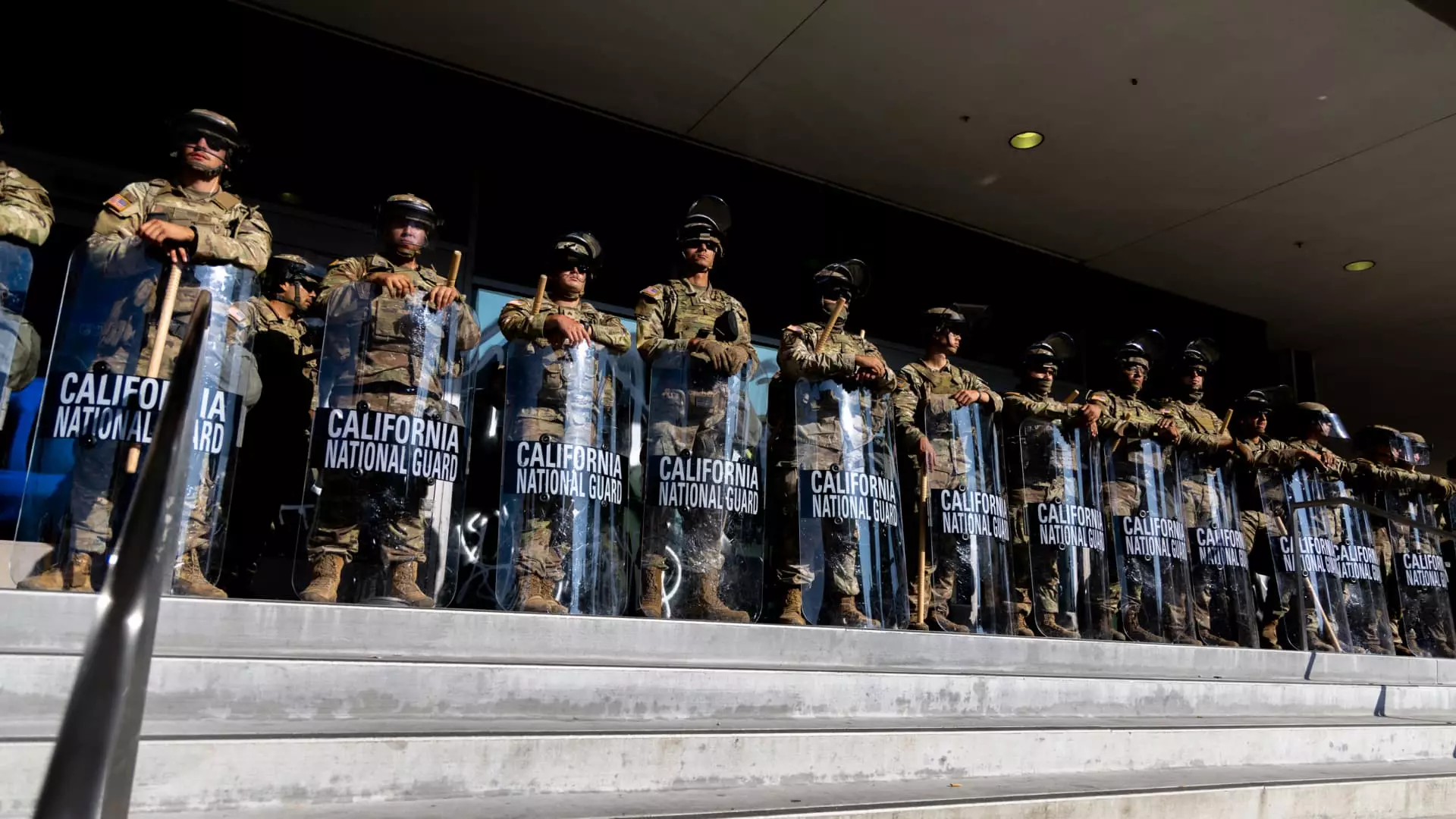In a move echoing the divisive nature of his presidency, Donald Trump’s recent ability to retain control over the California National Guard has ignited a firestorm of scrutiny and debate. The 9th U.S. Circuit Court of Appeals delivered a unanimous verdict allowing the president to maintain authority over the troops deployed to Los Angeles. This marked a significant historical moment, shedding light on the encroaching federal authority that, if unchecked, could redefine the power dynamics between states and the federal government.
The roots of this decision stem from rising tensions fueled by immigration policy protests, with California Governor Gavin Newsom vehemently opposing the deployment. Underlying this power struggle is a disturbing trend: the military being used as an instrument of political control domestically, raising alarm bells over the potential for federal overreach. It’s worth noting that events leading up to this ruling illustrate the stark differences between Democratic and Republican governance philosophies, with Newsom emphasizing local authority and community-based solutions, and Trump advocating for a heavy-handed, military-led response to civic unrest.
Federal Interests vs. State Autonomy
The court’s reasoning revolves around the justification for federal intervention, citing significant protests that devolved into violence. The assertion that protesters “pinned down” law enforcement and hurled projectiles at them before the National Guard’s deployment was a pivotal point in the court’s analysis. While undeniably chaotic, framing these protests as a justification for military intervention veers dangerously close to normalizing a militarized response to civil dissent — an unsettling notion that resonates with authoritarian regimes rather than a democratic ethos.
Moreover, the panel concluded that even if proper notification protocols to the state governor were disregarded, the president’s deployment was, in their view, permissible. This raises critical questions: Where is the line drawn between necessary action and overreach? Will the social order be protected at the expense of personal liberties? While security is evidently paramount, utilizing military force against civilian protests signifies an unsettling precedent that undermines democratic ideals.
Implications of Militarized Responses
As this story unfolds, the implications could be far-reaching, particularly for surveilling the deployment of federal resources in states governed by opposition parties. The fallout from this decision is not simply about the legality of presidential commandeering — it’s about what this means for the future of civil rights and the relationship between citizens and their government. The very fabric of democracy can fray when political grievances are addressed through force rather than dialogue, leaving citizens in a precarious position of fear rather than safety.
Even more troubling is the acknowledgment that this case could shape presidential powers for generations. Should federal authorities continue to usurp state control without consequences, we risk drifting further away from democratic principles. The dissent voiced by Gov. Newsom reflects the discomfort many feel in witnessing a state’s authority rendered null by federally mandated action, echoing a broader narrative of centralization that threatens local governance across the nation.
The Climate for Dialogue Is Deteriorating
As the appeals process continues, the broader cultural implications draw attention. The militarization of civic unrest is detrimental to the fabric of American society, fostering an atmosphere of fear and division. It places the government on a war footing against its own citizens at a time when meaningful discourse is desperately needed. The lessons of history caution against such a development where populace grievances, whether related to policy, race, or identity, are met with aggression rather than understanding and compassion.
The reality is that an ongoing dialogue centered on communal wellbeing is considerably more effective than the spectacle of brute force. In this age of divisive rhetoric and polarized opinion, any discourse reduced to threats would hastily reduce our democracy to echoes of tumultuous dissent, rather than a vibrant, collaborative environment. As members of a democratic society, we must advocate for a recalibration of priorities that places dialogue and understanding—rather than military displays—at the forefront of our national response to unrest.


Leave a Reply